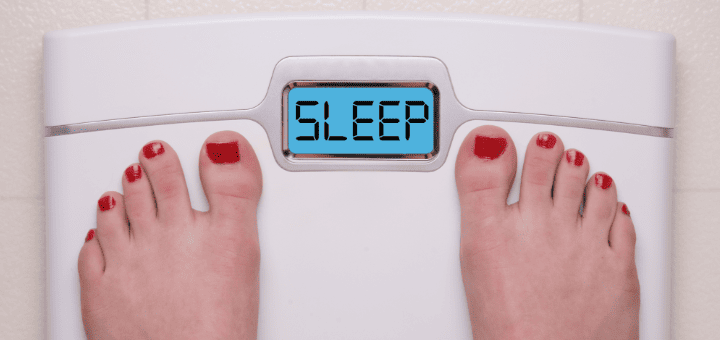What Is the Connection Between Sleep and Weight Gain

This article explores the connection between sleep and weight gain.
It examines the importance of sleep for weight management and how a lack of sleep can contribute to weight gain.
Additionally, it investigates the role of hormones in sleep and weight regulation, as well as the impact of sleep quality on food cravings.
Furthermore, it delves into the link between sleep deprivation and late-night snacking.
Finally, it provides strategies for improving sleep to support healthy weight loss.
Key Takeaways
- Sleep duration and quality are crucial for weight management.
- Short sleep duration and poor sleep quality are linked to increased risk of weight gain and obesity.
- Sleep deprivation affects metabolic processes, such as insulin sensitivity and hunger hormones, leading to increased caloric intake and weight gain.
- Hormonal regulation plays a crucial role in appetite control, and sleep deprivation disrupts hormone levels, increasing appetite and cravings.
The Importance of Sleep for Weight Management
The relationship between sleep and weight management has been recognized as significant in academic research. Sleep duration and sleep quality are two important factors that play a crucial role in weight management.
Adequate sleep duration has been associated with a lower risk of weight gain and obesity. Research studies have consistently demonstrated a negative correlation between short sleep duration and an increased risk of obesity and higher body mass index (BMI).
In addition to sleep duration, sleep quality also affects weight management. Poor sleep quality has been linked with an increased risk of weight gain and obesity. It is important to note that insufficient or poor-quality sleep can disrupt hormonal regulation, leading to increased appetite and cravings for high-calorie foods.
Therefore, both sleep duration and quality should be prioritized to support weight management efforts.
How Lack of Sleep Can Contribute to Weight Gain
The relationship between sleep and metabolism is a topic of interest in the field of obesity and weight management. Sleep deprivation has been associated with alterations in metabolic processes, such as decreased insulin sensitivity and increased hunger hormones.
These hormonal effects on appetite can lead to an increased caloric intake and contribute to weight gain.
Sleep and Metabolism Link
Research has found a connection between sleep and changes in metabolism. Sleep plays a crucial role in regulating various physiological processes, including metabolism. Adequate sleep is essential for maintaining a healthy metabolic rate, while sleep deprivation can have negative effects on metabolism. Lack of sleep has been associated with alterations in hormone levels, such as increased levels of ghrelin (a hunger-stimulating hormone) and decreased levels of leptin (a hormone that promotes feelings of fullness). These hormonal changes can lead to increased appetite and food cravings, which can contribute to weight gain. Additionally, sleep deprivation has been shown to impair glucose metabolism and insulin sensitivity, which can increase the risk of developing conditions such as obesity and type 2 diabetes.
| Effects of Sleep Deprivation on Metabolism |
|---|
| Increased appetite and food cravings |
| Altered hormone levels |
| Impaired glucose metabolism |
| Decreased insulin sensitivity |
| Increased risk of obesity and diabetes |
Hormonal Effects on Appetite
Hormonal changes due to sleep deprivation can lead to an increase in appetite and cravings for food. Hormonal regulation plays a crucial role in appetite control, with various hormones involved in the regulation of hunger and satiety signals.
Sleep deprivation disrupts this delicate balance, leading to alterations in hormone levels that can influence appetite. One hormone affected by sleep deprivation is ghrelin, which stimulates hunger and increases food intake. Studies have shown that sleep-deprived individuals have higher levels of ghrelin, leading to increased appetite and a preference for calorie-dense foods.
Another hormone affected is leptin, which suppresses appetite and regulates energy balance. Sleep deprivation has been associated with reduced leptin levels, resulting in decreased satiety signals and a higher likelihood of overeating.
Therefore, understanding the hormonal effects of sleep deprivation on appetite regulation is crucial in combating weight gain and maintaining a healthy lifestyle.
The Role of Hormones in Sleep and Weight Regulation
One factor influencing sleep and weight regulation is the role of hormones. Hormonal imbalances can disrupt the body’s natural processes, including sleep and weight management. Here are three ways in which hormones play a crucial role in this relationship:
- Hormonal imbalances: Certain hormones, such as leptin and ghrelin, regulate appetite and energy expenditure. An imbalance in these hormones can lead to increased hunger and decreased satiety, potentially resulting in weight gain.
- Sleep deprivation and weight gain: Lack of sleep can disrupt the hormonal balance, leading to increased production of ghrelin (the hunger hormone) and decreased production of leptin (the hormone that signals fullness). This can contribute to overeating and weight gain.
- Sleep duration and weight management: Studies have shown that individuals who consistently get less sleep are more likely to gain weight over time. Adequate sleep duration is associated with better hormone regulation, appetite control, and weight management.
Understanding the intricate relationship between hormones, sleep, and weight regulation is essential for developing effective strategies to promote healthy sleep and manage weight.
Sleep Quality and Its Impact on Food Cravings
Sleep quality has been found to have a significant impact on the frequency and intensity of food cravings. Research suggests that insufficient sleep duration can disrupt the balance of hunger hormones, leading to increased appetite and cravings for high-calorie foods. Inadequate sleep has been associated with higher levels of ghrelin, a hormone that stimulates appetite, and lower levels of leptin, a hormone that signals fullness.
These hormonal changes can contribute to overeating and weight gain. Additionally, poor sleep quality has been linked to emotional eating, where individuals turn to food as a means of coping with negative emotions. This suggests that sleep disturbances not only affect physiological hunger and satiety signals but also influence the psychological aspect of food cravings.
Therefore, improving sleep quality may be an important strategy in managing food cravings and promoting healthy eating behaviors.
The Link Between Sleep Deprivation and Late-Night Snacking
The relationship between sleep deprivation and late-night snacking has been a topic of interest in the field of nutrition and metabolism. Research has shown that sleep loss increases the likelihood of engaging in unplanned snacking, particularly on high-calorie, sugary, and fatty foods.
Furthermore, lack of sleep has been found to trigger cravings for these types of foods, potentially contributing to weight gain and metabolic dysfunction.
Additionally, late-night eating disrupts metabolic processes and can lead to weight gain, as the body’s ability to efficiently process and burn calories is compromised during sleep.
Sleep Loss Increases Snacking
In the context of the connection between sleep and weight gain, the propensity for increased snacking is found to be elevated in individuals experiencing sleep loss. Sleep deprivation effects have been extensively studied, and it has been observed that inadequate sleep can lead to disruptions in appetite regulation.
The sleep and hunger correlation is evident in the following ways:
- Increased ghrelin levels: Sleep loss is associated with higher levels of ghrelin, a hormone that stimulates hunger. This hormonal imbalance can result in an increased desire for food, leading to excessive snacking.
- Altered leptin levels: Leptin, a hormone that signals satiety, is reduced in individuals experiencing sleep deprivation. This reduction in leptin can result in a decreased feeling of fullness, prompting individuals to consume more snacks.
- Cravings for high-calorie foods: Sleep loss has been linked to an increased preference for high-calorie, sugary, and fatty foods. These cravings may contribute to the consumption of calorie-dense snacks, leading to weight gain over time.
Understanding the impact of sleep loss on snacking behaviors is crucial for developing interventions to prevent weight gain and promote healthy eating habits.
Lack of Sleep Triggers Cravings
A lack of adequate rest has been found to stimulate cravings for unhealthy food options. Research has shown that sleep deprivation disrupts the balance of hormones involved in appetite regulation, leading to an increase in cravings for high-calorie, sugary, and fatty foods.
In addition to the direct effect on cravings, insufficient sleep also affects food choices by impairing the prefrontal cortex, which is responsible for decision-making and self-control. This can result in a greater preference for unhealthy food options.
Furthermore, the relationship between sleep and stress plays a significant role in the sleep-exercise connection. Chronic stress can disrupt sleep patterns, leading to sleep deprivation, which in turn increases cravings for unhealthy foods.
Addressing sleep disturbances and managing stress levels may therefore be important considerations in promoting healthy food choices and weight management.
Late-Night Eating Disrupts Metabolism
Previous research has shown that lack of sleep can lead to increased cravings for high-calorie foods. However, another factor that may contribute to weight gain is late-night eating. Sleep duration and weight gain are closely linked, as disruptions in sleep patterns can affect the body’s circadian rhythm, which in turn can disrupt metabolism and increase the likelihood of weight gain.
Late-night eating, particularly consuming high-calorie and unhealthy foods during this time, can further exacerbate these effects. Here are three ways in which late-night eating can disrupt metabolism:
- Disrupted circadian rhythm: Late-night eating can disrupt the body’s natural sleep-wake cycle, which can lead to metabolic dysregulation and weight gain.
- Altered hormone production: Eating late at night can affect the production of hormones such as insulin and leptin, which are involved in appetite regulation and metabolism.
- Increased calorie intake: Late-night eating often involves consuming more calories than the body needs, which can contribute to weight gain over time.
Strategies for Improving Sleep to Support Healthy Weight Loss
To optimize weight loss efforts, it is recommended to implement strategies aimed at improving sleep quality and duration. Adequate sleep is important for overall health and well-being, and it can also have a significant impact on weight management. Improving sleep hygiene, such as creating a relaxing bedtime routine and maintaining a consistent sleep schedule, can help regulate the body’s internal clock and promote better sleep. Benefits of a consistent sleep schedule include improved sleep quality, enhanced metabolism, and reduced risk of weight gain. In order to illustrate the benefits of a consistent sleep schedule, the following table highlights some key findings from recent studies:
| Study | Findings |
|---|---|
| Study 1 | Consistent sleep schedule associated with lower body mass index (BMI) |
| Study 2 | Regular sleep pattern linked to improved insulin sensitivity |
| Study 3 | Adequate sleep duration related to reduced appetite and lower calorie intake |
| Study 4 | Better sleep quality associated with improved weight loss outcomes |
| Study 5 | Disrupted sleep schedule linked to increased risk of obesity |
Implementing strategies to improve sleep quality and maintain a consistent sleep schedule can be a valuable addition to weight loss efforts.
Frequently Asked Questions
Can Poor Sleep Quality Affect My Appetite and Food Cravings?
The impact of poor sleep quality on appetite and food cravings has been studied extensively. Research suggests that inadequate sleep can disrupt metabolism and lead to changes in hunger hormones, potentially contributing to weight gain.
What Hormones Are Involved in Sleep and Weight Regulation?
Sleep plays a crucial role in regulating metabolism and hormone levels, including leptin. Leptin is a hormone that signals feelings of fullness and helps regulate energy balance. Disruptions in sleep can lead to changes in leptin levels, potentially contributing to weight gain.
Does Sleep Deprivation Lead to Increased Calorie Intake?
The impact of sleep duration on metabolism and the relationship between sleep deprivation and weight management have been investigated. Research suggests that sleep deprivation may lead to increased calorie intake, potentially contributing to weight gain.
Are There Any Strategies to Improve Sleep That Can Help With Weight Loss?
Improving sleep hygiene and increasing sleep duration may potentially aid in weight loss. Strategies such as maintaining a regular sleep schedule, creating a sleep-friendly environment, and practicing relaxation techniques can promote better sleep quality and quantity, which may have a positive impact on weight management.
How Does Lack of Sleep Contribute to Late-Night Snacking?
The impact of lack of sleep on metabolism and hunger hormones can contribute to late-night snacking. Research suggests that insufficient sleep disrupts the balance of key hormones involved in appetite regulation, leading to increased food intake, especially during nighttime hours.









